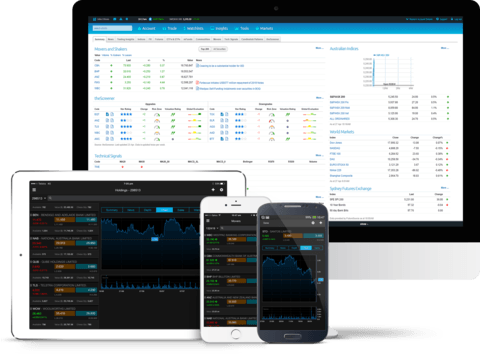CFD Trading Platforms: Choosing the Right Tools for Success

In the world of finance, Contract for Difference (CFD) trading has emerged as a popular way for investors to speculate on the price movements of various financial instruments without owning the underlying asset. Whether it’s stocks, commodities, forex, or indices, CFD trading offers a flexible and potentially lucrative avenue for both novice and experienced traders. However, the key to success in CFD trading lies in choosing the right trading platform. This article will guide you through the essential features to look for in a CFD trading platform to help you make an informed decision.
Understanding CFD Trading
Before diving into the specifics of trading platforms, it’s crucial to understand what CFD trading entails. A CFD is a financial derivative that allows traders to speculate on the price movements of an underlying asset. The trader and the broker agree to exchange the difference in the asset’s price from the time the contract is opened to when it is closed. One of the primary advantages of CFD trading is the ability to trade on margin, meaning you can open larger positions than your initial capital would allow.
Key Features of an Effective CFD Trading Platform
1. User-Friendly Interface
A user-friendly interface is paramount, especially for beginners. The platform should be intuitive, easy to navigate, and provide a seamless trading experience. Look for platforms that offer customizable dashboards, clear charting tools, and straightforward order placement processes.
2. Comprehensive Charting and Analysis Tools
Successful CFD trading relies heavily on technical analysis. Therefore, the platform you choose should offer a wide range of charting tools, indicators, and analytical capabilities. Advanced features like drawing tools, multiple time frames, and automated trading signals can significantly enhance your trading strategy.
3. Wide Range of Tradable Assets
Diversity in tradable assets is another critical factor. A robust CFD trading platform should offer a broad spectrum of financial instruments, including stocks, commodities, forex, indices, and cryptocurrencies. This diversity allows you to take advantage of various market conditions and opportunities.
4. Leverage and Margin Requirements
Leverage can amplify both your profits and losses, making it a double-edged sword. Different platforms offer varying levels of leverage, so it’s essential to choose one that aligns with your risk tolerance and trading strategy. Additionally, be aware of the platform’s margin requirements, as these can impact your ability to open and maintain positions.
5. Regulation and Security
Security is non-negotiable when it comes to trading platforms. Ensure that the platform is regulated by reputable financial authorities and employs robust security measures, such as encryption and two-factor authentication, to protect your funds and personal information.
6. Customer Support
Reliable customer support can be a lifesaver when you encounter issues or have questions. Look for platforms that offer multiple support channels, including live chat, email, and phone support. Additionally, check the availability of customer support to ensure you can get assistance when you need it.
7. Cost and Fees
Trading costs can eat into your profits, so it’s crucial to understand the fee structure of the platform. Common fees include spreads, commissions, overnight financing charges, and withdrawal fees. Compare these costs across different platforms to find one that offers competitive rates without compromising on quality.
Popular CFD Trading Platforms
Here are a few popular CFD trading platforms that are well-regarded in the trading community:
1. MetaTrader 4/5 (MT4/MT5)
MetaTrader is a widely-used platform known for its comprehensive charting tools, automated trading capabilities, and user-friendly interface. It supports a wide range of assets and offers customizable features to suit different trading styles.
2. eToro
eToro stands out for its social trading features, allowing you to follow and copy the trades of successful traders. It offers a diverse range of assets, including stocks, commodities, and cryptocurrencies, making it suitable for traders seeking variety.
3. IG Group
IG Group is a well-established broker with a robust trading platform offering extensive charting tools, educational resources, and competitive spreads. It’s regulated by top-tier financial authorities, ensuring a secure trading environment.
Conclusion
Choosing the right CFD trading platform is a critical step toward achieving success in the financial markets. By considering factors such as user interface, charting tools, asset range, leverage, security, customer support, and fees, you can find a platform that aligns with your trading needs and goals. Remember, the right tools can make a significant difference in your trading journey, so take the time to research and choose wisely. Happy trading!